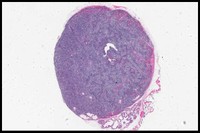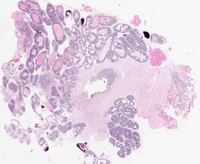Rutgers Researchers Find a Possible ‘Smoking Gun’ for Prostate Cancer
Findings provide potential new directions for the detection and prevention

In the January 2010 issue of PLoS One, Kong and his co-authors report that they have figured out how a gene that normally protects against prostate cancer in mice, and potentially in humans, works.

According to the American Cancer Society, about 217,730 new cases of prostate cancer will be diagnosed About 32,050 men will die of prostate cancer About one man in 6 will be diagnosed with prostate cancer during his
lifetime. More than 2 million men in the United States who have been diagnosed with prostate cancer at some point are still alive today.
Although previous studies have indicated that adding chemicals found in plants to the food of laboratory mice can inhibit and prevent the formation of prostate cancer tumors, researchers have not been sure how it occurs or why it happens because they did not know how tumors got started in the first place.

The researchers said they have discovered the strand of DNA where the source of the gene suppression is located and believe this discovery will provide new direction for the detection and prevention of prostate cancer.
Media Contact: Ken Branson
732-932-7084, ext. 633
E-mail: kbranson@ur.rutgers.edu